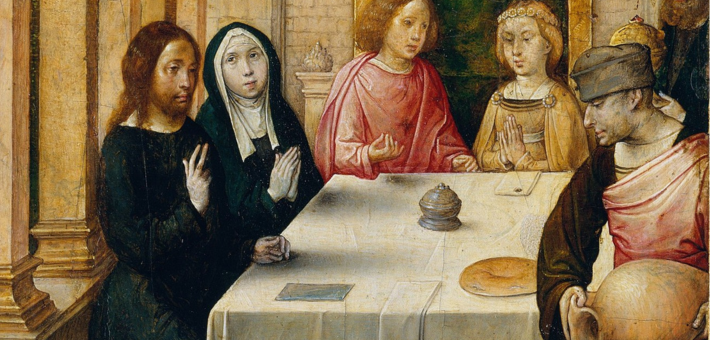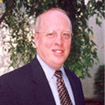Commentary on 1 Corinthians 12:1-11
When reading any part of 1 Corinthians—but especially chapters 12–13, the epistle lessons for this and the next two weeks—it is important to remember Paul’s two central concerns throughout the entire letter.
First, from the beginning, Paul reminds the Corinthian believers that they exist, not just as a group of people who come together once a week, but as a “church of God,” and not just any church of God, but “the church of God that is in Corinth.” God has called them together in Christ to live and serve in a specific city, with its own historical and cultural context that generally pays little attention to God, the call of Christ, or the richness of life in the Spirit. Paul calls on them to bring their distinctive identity and purpose to full expression right there where they meet together and live.
Second, throughout the letter, based on reports he has heard and on his own experience, Paul expresses concern about how they seem to be doing with respect to that identity and purpose (1:11; 3:1–4; 5:1; 11:18). His assessment does not focus on how many members they have, their average attendance, or their total or per capita giving (though those matters do show up in the discussion).
Paul focuses on their actions, especially how they treat each other. What are they doing or not doing—for better and for worse—with respect to one area of life after another: love, marriage, sex and positive sexuality, money, food, giving, personal and communal spirituality and worship, gender roles, death, resurrection, and afterlife? Pick any area, and their actions toward each other have made it a source of conflict.
All these things, rather than constituting the energizing elements of day-to-day life, have, in Corinth, become a fractured, contentious mix of aggression, defensiveness, self-importance, self-righteousness, and self-preservation. Given their conflicts, Paul tries to redirect their energies, chart a new course—as individuals and as a community—that, above all else, draws on their core identity and purpose as the church of God in Corinth.
To that end, this passage offers a list of qualities more worth seeking than power, status, and influence to make everyone else think and be like you. The passage outlines different areas of community life—“gifts,” “services,” and “activities”—that, for the good of all, create and increase wisdom, knowledge, faith, healing, powerful deeds, prophecy, discernment, tongues, and interpretation of tongues (12:4–6, 8–10).
The Spirit offers these gifts to every community so they can grow to fulfill the ministries to which God calls them and can meet needs in the community around them. (Paul offers a different, though consistent, list in Galatians 5:22–23.) We do not actually choose the gifts, ministries, and activities that come to us. We can open ourselves to their transforming power, but their vitality and strength do not emerge out of our efforts. They grow within us “as the Spirit chooses” (12:11). Ten times in the passage Paul points us to the Spirit and to the centrality not of our own ways but of spiritual gifts, spiritual people, and the spiritual dimensions of our lives.
A variety of gifts abound. All come from “the same Spirit” and “the same Lord”; “the same God … activates all of them in everyone” (12:4–6). Paul calls for a radical attitude adjustment among the congregation’s individuals and factions, saying: “Your” church is not your church; it’s God’s church. It’s the church of God in Corinth (or wherever a church happens to be).
God’s church, wherever it is and whoever is part of it, is not first and foremost about “us,” our factions, our lines of division, our designations of friend or foe, our preferences, habits, loyalties, political parties, or theologies. It’s all about the God, Lord, and Spirit who seeks to give our faith communities the wisdom, knowledge, faith, healing, powerful deeds, prophecy, discernment, “tongues,” and “interpretation of tongues” that lead us to embody the heart and mind of God.
God’s church does not exist for the sake of our factions, disputes, rigid lines of disagreement, closed minds, closed hearts, and closed-off souls. Paul’s emphasis on the Spirit’s work as the true source of our individual and communal lives reminds us that everyone in our context—in the reach of our thoughts, words, and deeds—was created in the image of God and is as loved by God as we are.
These gifts, ministries, and activities are given to us not for ourselves but “for the common good” (12:7). This “common good” has no limitations or boundaries. It extends not only to “me,” or “us,” or whatever congregation or denomination we call our own. It extends beyond family, friends, neighborhoods, cities, states, political parties, countries; it extends across all lines of division, distinction, and separation humans have created. The common good extends to the whole globe, to the whole creation of which we all are a part.
God’s gifts remain abundantly available to all. Christ calls us together. The Spirit equips us to move way beyond ourselves.
Epilogue
The current, divided cultural climate in the United States and around the world, in light of the conflicted climate of the Corinthian church, confirms, as Ecclesiastes 1:9 says, that “there is nothing new under the sun.” That does not make it easy to live in peace or find common ground in these times. But particularly given that this lesson occurs on January 19, the day before the US presidential inauguration, exploring Paul’s approach to the conflicts in Corinth might provide an instructive three weeks for congregations who also live in divided contexts.


January 19, 2025